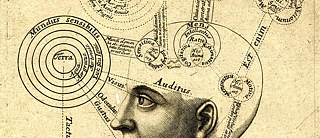Theoriekurs
Wagner’s Ring Cycle: the Total Art Work

At age 37, Richard Wagner—composer, exile, and failed revolutionary—set to work on the project that would consume the next 25 years of his life. By its completion, it had grown into arguably the most ambitious artwork of the 19th century: the monumental cycle Der Ring des Nibelungen, a fifteen-hour operatic tetralogy of unprecedented scope and complexity, narrating the history of the world from its birth to its destruction. The cycle was intended not only as entertainment, but as a vehicle of social and political transformation—a means by which to realize, through art, the utopian aspirations that had been crushed in the revolutions of 1848. Its music captivated devotees from Charles Baudelaire to the young Friedrich Nietzsche, while Wagner’s artistic radicalism and prophetic self-image transformed the arts. Yet in the course of its composition Wagner evolved from a firebrand into a confidant of kings, disciple of Schopenhauer, and tutelary spirit of German nationalism. And even his most ardent admirers could not agree on the true nature of his work. What was Wagner? A Revolutionary, a nationalist, or a decadent? How does his ambition to create a Gesamtkunstwerk—a “Total Work of Art”—resonate with contemporary questions about art, media, and society? What can we learn about music, art, and ideology from Wagner’s magnum opus?
In this course, we will examine the many facets of the Ring: its music, its mythology, its transformative social and political project, and its long historical shadow. We will listen to and discuss all four operas, coupling them with readings from Wagner and from his admirers and detractors, including Nietzsche, Adorno, and Thomas Mann. We’ll explore the intricacies of Wagner’s artistic technique, from the complex web of musical leitmotifs that unite the four operas to the harmonic and orchestral innovations that mesmerized his contemporaries, and consider their relation to the Ring’s larger political and metaphysical vision. We’ll discuss the long afterlife of Wagner’s masterwork and its impact both on the history of the arts and the events of the twentieth century. And finally, we’ll ask what the Ring, in all its contradictory complexity—with its utopian ambition, startling sensuality, and fraught legacy—means for us as listeners today.
Instructor: Nathan Shields
Nathan Shields received his doctorate in Composition from the Juilliard School, where he also served for several years on the Music History faculty. Last year he was Visiting Assistant Professor of Music at St. Olaf College. His research interests include Romantic and Modernist music, with an emphasis on Wagner and fin-de-siècle Vienna; sacred music of the late medieval and early modern eras; and music’s relation to the history of philosophy and religious thought.
Details
Goethe-Institut New York
30 Irving Place
New York, NY 10003
Sprache: Englisch
Preis: $315
+1 212 4398700
info@thebrooklyninstitute.com
Diese Veranstaltung ist Teil der Veranstaltungsreihe Brooklyn Institute for Social Research.